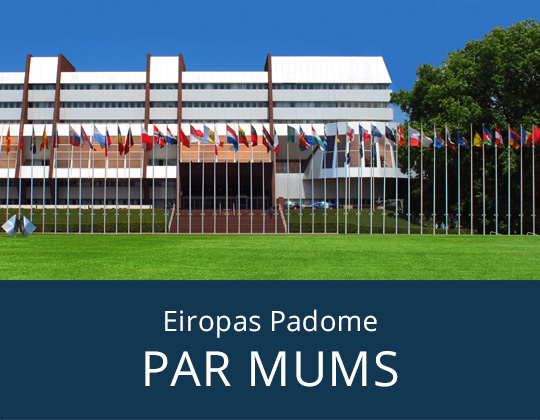Dibinātāji
Dibinātāji
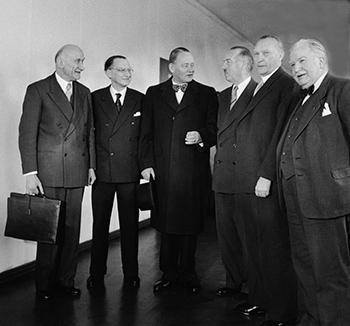
Eiropas dibinātāji bija cilvēki, kuri uzsāka Eiropas būvēšanas procesu, 1949. gadā nodibinot Eiropas Padomi un 1950. gadā izveidojot Eiropas Ogļu un tērauda kopienu (EOTK), un 1957. gadā - Eiropas Ekonomikas kopienu (EEK).
Šie dialoga cilvēki, kuri bija izdzīvojuši divos pasaules karos un pieredzējuši daudzu Eiropas kultūru veidošanos, bija Eiropas miera, kas balstīts uz tādām vērtībām, kā cilvēktiesības, demokrātija un tiesiskums, pionieri.

 Eiropas pionieri
Eiropas pionieri
Winston Churchill
Prime Minister of the United Kingdom
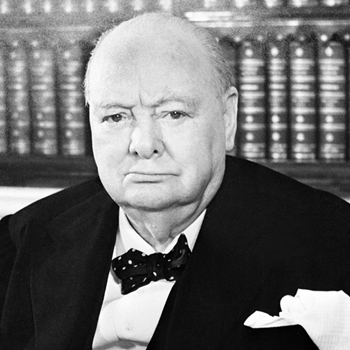
12 August 1949, Strasbourg
The dangers threatening us are great but great too is our strength, and there is no reason why we should not succeed in achieving our aims and establishing the structure of this united Europe whose moral concepts will be able to win the respect and recognition of mankind, and whose physical strength will be such that no one will dare to hold up its peaceful journey towards the future
His speech:
In our long history we have triumphed over the dangers of religious and dynastic wars; after thirty years of fighting I am confident that we have reached the end of nationalist wars. After all our victories and all our suffering are we now going to slide into a final chaos, in the ideological wars unleashed among us by barbaric, criminal oligarchies, prepared by the agitators of the fifth column infiltrating and conspiring in so many countries?
No, I am certain that it is within our powers to overcome the dangers still before us, if we so wish. Our hopes and our work point to an era of peace, prosperity and abundance and the inexhaustible wealth and genius of Europe will turn it once again into the very source and inspi¬ration of the world's life. In all of this we advance with the support of the powerful republic across the Atlantic and the sovereign states which are members of the empire and commonwealth of Britannic nations. The dangers threatening us are great but great too is our strength, and there is no reason why we should not succeed in achieving our aims and establishing the structure of this united Europe whose moral concepts will be able to win the respect and recognition of mankind, and whose physical strength will be such that no one will dare to hold up its peaceful journey towards the future.
Konrad Adenauer
Chancellor and Minister for Foreign Affairs of the Federal Republic of Germany
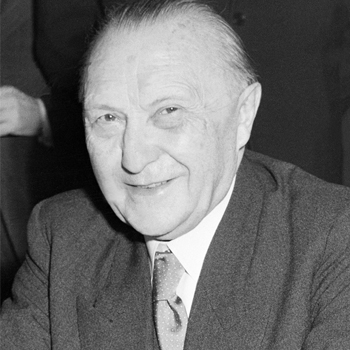
10 December 1951
And it is also greatly significant that here, at any rate, there is a place where almost the whole of Europe gathers together
His speech:
It is of great significance for the political development of Europe that here, in the organs of the Council of Europe, we have a platform on which the representatives of Europe meet regularly, discuss their worries and anxieties, their desires and their hopes, a platform where they try to establish common criteria for evaluating their requirements, and where, in general, they co-operate with one another in a spirit of fairness and of good neighbourliness. In other words, here we find an expression of the European conscience. And it is also greatly significant that here, at any rate, there is a place where almost the whole of Europe gathers together, despite all the different shades of opinion that have shown themselves in our efforts to achieve closer organisational co-operation.
European policy in every country will ultimately receive its impetus from the collective will of the European peoples. But nowhere is this so manifest as a collective will as it is in the Council of Europe.
Robert Schuman
French Republic Minister for Foreign Affairs
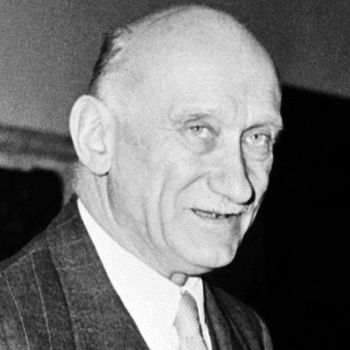
10 December 1951
The Council of Europe is, to be sure, the laboratory in which experiments in European co-operation are conducted
His speech:
The Council of Europe is, to be sure, the laboratory in which experiments in European co-operation are conducted, until such time as it is transformed into an organic institution of European unity. We are still at the stage of early disappointments and apparent failures, but they are never sufficient justification for discouragement, through they may sometimes justify a salutary impatience. Like the laws of nature, true ideas come to be recognised and applied in the end. It is our inadequacies, our lack of courage and our passions that are responsible for the delay in their discovery and execution.
It would be wrong, as well as dangerous to underestimate the difficulties of achieving the integration of Europe. To achieve success we shall need a great deal of tenacity and patience, both within our own countries and in negotiations between the Governments themselves. But, whatever the result we achieve, the problem of the unification of Europe has been raised, and it can no longer be eluded. Should we show ourselves powerless to solve it as a result of our hesitancy, events and the aspirations of the peoples would take it upon themselves to force us to make the necessary decisions. If we do not make up our minds in time, Ladies and Gentlemen, we shall run the risk of letting slip the last chance of salvation for Europe and for our countries.
Paul-Henri Spaak
Prime Minister and Foreign Minister of Belgium in the 40s and 50s
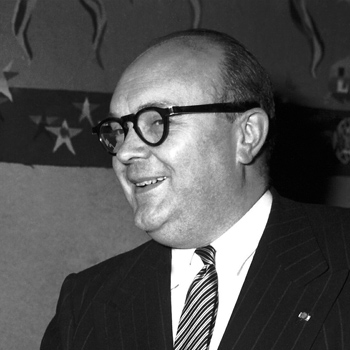
15 May 1962
Because it is here that all of Europe comes together, and because there are occasions like today's when problems arise [...] and need to be examined by all the countries of Europe
His speech:
Mr President, ladies and gentlemen, perhaps I may begin by saying how gratified I am to return to this rostrum. My gratification is tinged with a little emotion, as I think about all that has happened in this Assembly, about all the debates in which I have taken part and about our successes and failures. It is a long time since I was here, and I have been told that the Assembly has sometimes been a little disheartened and felt doubts as to its own usefulness.
It might be immodest of me to say that my presence here today at least proves that a number of ministers remain confident in this organisation and consider that more and better use than in the past ought to be made of the Assembly. For my part, I could in fact have opted for any one of several organisations and spoken in another assembly. Why did I opt for this one? Because it has its own vocation, because it is here that all of Europe comes together, and because there are occasions like today's when problems arise which go beyond the framework of the six countries, and need to be examined by all the countries of Europe.
Alcide de Gasperi
Prime Minister of the Republic of Italy
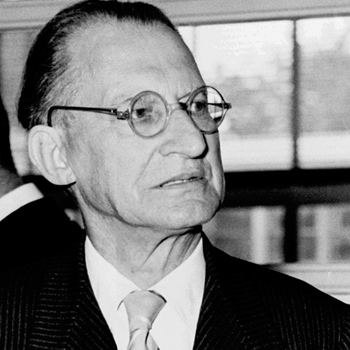
10 December 1951
While we are building it our action must always be such that the goal remains clear, definite, and generally agreed
His speech:
If we do no more than set up common administrations, without any higher political will, drawing life from a central organisation, in which the wills of the various nations can come together, to gain fresh decision and warmth in a higher union, there will be a danger that this European activity may prove, in comparison with the dynamic force of the individual nations, to lack warmth and spiritual vitality; it might even seem, at times, to be mere superfluous and burdensome trappings, comparable to what over-burdened the Holy Roman Empire at certain period of decline.
In that case, the young people of Europe, harkening to the clearer call of their blood and their homeland, would regard the European entity, if thus constructed, as an obstacle or as an incubus. In that case there would be an obvious danger of degeneration.
That is why, despite our clear awareness of the need to build this construction by gradual stages, we consider that while we are building it our action must always be such that the goal remains clear, definite, and generally agreed.
I am well aware that this European ideal has not yet taken a sufficiently strong hold on the public mind: there is only a group of politicians, intellectuals and idealists who are ready to turn aside from their constant preoccupation with the problems of their countries' reconstruction, in order to devote their efforts to the preparation of a common future. You, the members of this Assembly, are among their number, through the trust that has been laid upon you by your colleagues, who, like yourselves, were elected by the people.
Ernest Bevin
United Kingdom Secretary of State for Foreign Affairs
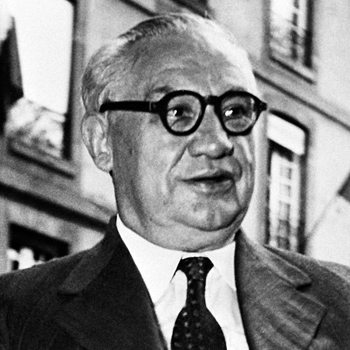
5 May 1949
We are witnessing today the establishment of a common democratic institution on this ancient continent of Europe
His speech:
Gentlemen, We have met together now for the ceremony of signature of the Statute of the Council of Europe, and of the agreement concerning the establishment of the preparatory commission.
Like the rest of my colleagues I want to express my feeling that this is a truly historic occasion. This Statute which we are signing today is the result of many months of friendly negotiations between ten of the principal countries of Western Europe. It took shape in Paris during the discussions at the end of last year under the chairmanship of that distinguished French statesman Monsieur Herriot, and it has been continued in London by the diplomatic representatives of the ten countries. Now it has been put into final shape in this treaty. This agreement lays the foundations of something new and hopeful in European life. We are witnessing today the establishment of a common democratic institution on this ancient continent of Europe.

Did you know?
The Council of Europe is a separate organisation from the 27-member EU. No country has joined the EU without first joining the Council of Europe.




